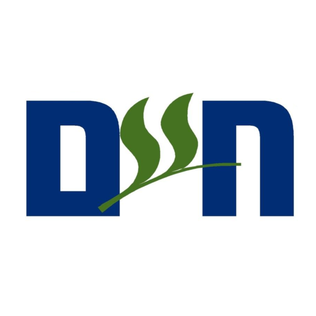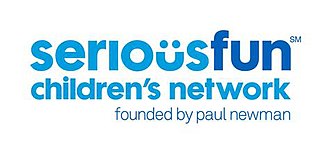Palliative care is an interdisciplinary medical caregiving approach aimed at optimizing quality of life and mitigating suffering among people with serious, complex, and often terminal illnesses. Within the published literature, many definitions of palliative care exist. The World Health Organization (WHO) describes palliative care as "an approach that improves the quality of life of patients and their families facing the problems associated with life-threatening illness, through the prevention and relief of suffering by means of early identification and impeccable assessment and treatment of pain and other problems, physical, psychosocial, and spiritual." In the past, palliative care was a disease specific approach, but today the WHO takes a broader approach that suggests that the principles of palliative care should be applied as early as possible to any chronic and ultimately fatal illness.

Child care, otherwise known as day care, is the care and supervision of a child or multiple children at a time, whose ages range from two weeks of age to 18 years. Although most parents spend a significant amount of time caring for their child(ren), child care typically refers to the care provided by caregivers that are not the child's parents. Child care is a broad topic that covers a wide spectrum of professionals, institutions, contexts, activities, and social and cultural conventions. Early child care is an equally important and often overlooked component of child's developments.
Child life specialists are pediatric health care professionals who work with children and families in hospitals and other settings to help them cope with the challenges of hospitalization, illness, and disability. They provide children with age-appropriate preparation for medical procedures, pain management and coping strategies, and play and self-expression activities. They also provide information, support, and guidance to parents, siblings, and other family members.
Family literacy is a method of education. Relatively new, family literacy is being put into practice in the United States, Canada, and South Africa.
Early childhood intervention (ECI) is a support and educational system for very young children who have been victims of, or who are at high risk for child abuse and/or neglect as well as children who have developmental delays or disabilities. Some states and regions have chosen to focus these services on children with developmental disabilities or delays, but Early Childhood Intervention is not limited to children with these disabilities.
The Double H Ranch, co-founded in 1992 by Charles R. Wood and Paul Newman, provides specialized programs and year-round support for children and their families dealing with life-threatening illnesses. The Ranch's purpose is to enrich their lives and provide camp experiences that are memorable, exciting, fun, empowering, physically safe and medically sound.

California Proposition 10 (1998) is an initiative state constitutional amendment that appeared in the 1998 California General Election. The official name of this amendment is “The Children and Families First Act.” This amendment put a $.50 tax on cigarettes, and even up to $1 on other tobacco products such as chewing tobacco and cigars. The revenue from this tax would go to funding early childhood education in California. The tax went into effect January 1, 1999.

Jerry Moe is a counselor, author, trainer, and public speaker. He is a leader on issues for children living in families impacted by addiction and an advocate that recovery from addiction should include all family members. With a background in sociology, education and counseling, Moe developed a program for kids ages 7 to 12 years old to teach them what addiction is, that they are not responsible for their parents’ illness and to provide them with safe space where they can talk openly with others their age who are going through the same experiences. His program was among the first of its kind and is nationally recognized and emulated by mental health professionals, treatment centers and organizations. He is world-renowned for his work with young children struggling with familial addiction and serves on the advisory board for the National Association of Children of Addiction (NaCOA).
The National Military Family Association (NMFA), headquartered in Alexandria, Virginia, is a private non-profit association on a mission to stand up for, support, and enhance the quality of life for every military family through bold advocacy, innovative programming, and dynamic and responsive solutions.
The Tom Coughlin Jay Fund Foundation, also known simply as the Jay Fund, is a 501(c)(3) non-profit organization established in 1996 and "helps families tackle childhood cancer by providing comprehensive financial, emotional and practical support", according to the foundation's mission statement. Charity Navigator currently rates The Tom Coughlin Jay Fund Foundation as a 4-star organization, its highest rating.

Wonders & Worries is a nonprofit organization based in Austin, Texas, that provides professional support for children through a parent's illness, such as cancer, multiple sclerosis, diabetes, Lou Gehrig's disease, posttraumatic stress disorder and Alzheimer's disease.
Chai Lifeline is a chesed organization founded in 1987 by Rabbi Simcha Scholar to help families with "children battling a deadly disease."
Barretstown is a not-for-profit camp for children with cancer and other serious illnesses located at Barretstown Castle, Ballymore Eustace, County Kildare, in Ireland. It was founded in 1994 by Hollywood actor Paul Newman and is a member of the SeriousFun Children's Network of camps across the world.

Active Training and Education is a not-for-profit, educational charity which provides residential holidays to children of a school age within the United Kingdom. These holidays are called Superweeks.

The HAYIM Association for Children with Cancer in Israel is a non-governmental organization that works on a voluntary basis to provide relief and support for pediatric oncology patients in Israel.

Childhood cancer is cancer in a child. About 80% of childhood cancer cases can be successfully treated thanks to modern medical treatments and optimal patient care. However, only about 10% of children diagnosed with cancer reside in high-income countries where the necessary treatments and care is available. Childhood cancer represents only about 1% of all types of cancers diagnosed in children and adults. For this reason, childhood cancer is often ignored in control planning, contributing to the burden of missed opportunities for its diagnoses and management in countries that are low- and mid-income.

SeriousFun Children's Network is a global community of 30 camps and programs for seriously ill children. All camps and programs offer free recreational experiences to children with serious illnesses and their family members. The first SeriousFun camp was launched in 1988 by founder Paul Newman.

Children's Cancer Institute is an Australian medical research institute wholly dedicated to the prevention and treatment of childhood cancer. Established in 1976, the Institute is affililiated with both the University of New South Wales and Sydney Children's Hospital and is located in Randwick, Sydney, New South Wales.
Juan Pablo Romero Fuentes, born in 1983, is the founder of the Organisation "Los Patojos".

The Children's Cancer Foundation is a registered Australian charity that supports children with cancer and their families.










